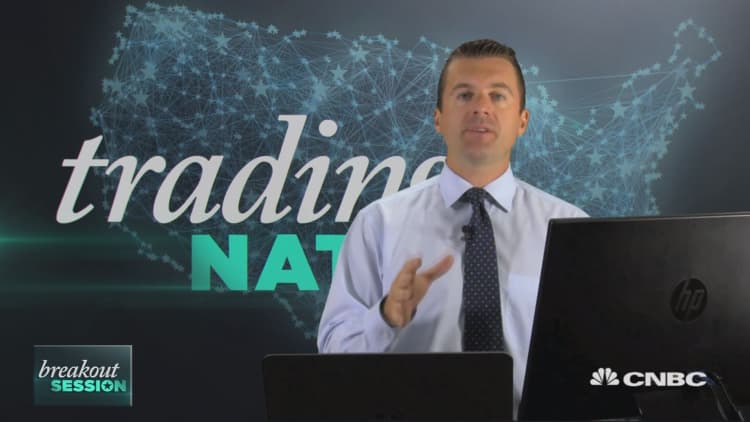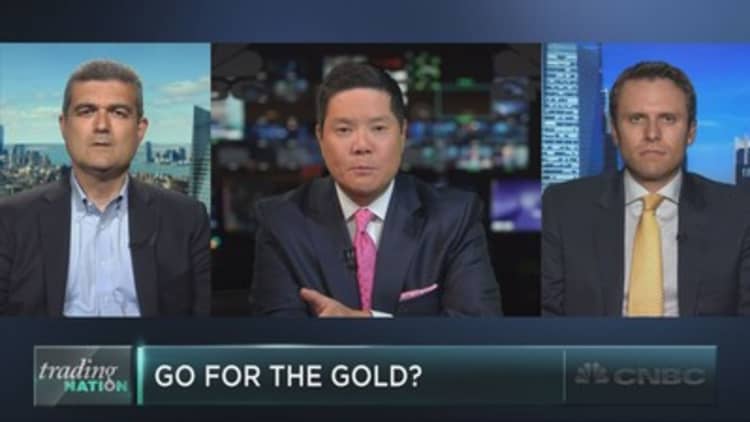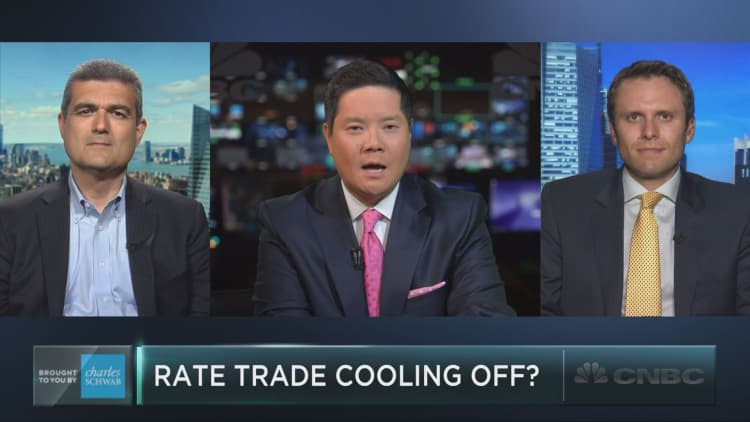


Trouble brewing with the Japanese yen spells trouble for U.S. stocks, according to Todd Gordon of TradingAnalysis.com.
The difficulty, Gordon said Friday on CNBC's "Trading Nation," could come with the yen. While the Bank of Japan pledged to almost double its ETF purchases after the conclusion of last week's meeting, it left interest rates and bond purchases unchanged.
The decision by Japan's central bank caused the yen to rise sharply, which traditionally hasn't boded well for international stocks.
"The Japanese yen is a very important market to indicate global risk appetite," said Gordon. "The Bank of Japan and the Ministry of Finance are introducing major stimulus packages in terms of monetary and fiscal policy, and it should be weakening the yen," but instead, the currency has been strengthening.
"The relationship we need to focus on as a U.S. investor or a global investor is a weakening yen is good for global stock markets," he added.
To illustrate his point, Gordon takes a look at FXY, the ETF that tracks the currency. The FXY jumped following the BOJ's decision to leave interest rates unchanged.
He then lays down a chart of the TLT, the U.S. 20-year Treasury bond ETF on top, showing a correlation between a strengthening yen and a rise in bond prices. In fact, U.S. treasury yields did tumble after the BOJ's announcement.
This, according to Gordon, is a "warning sign" for markets especially as trades inversely to both, which he shows by laying down a chart of the S&P 500 ETF SPY. To hedge against a potential drop in stocks, Gordon wants to play the yen to the upside.
Specifically, Gordon suggests buying the August 90-strike calls and selling the August 95-strike calls for a total cost of $2.20 per share. Since each contract controls 100 shares, this means that Gordon stands to make $280 while risking $220.
"As a hedge, if you are long markets and you want to get a safety trade on, I want to go ahead and put on a long FXY trade," he said.





